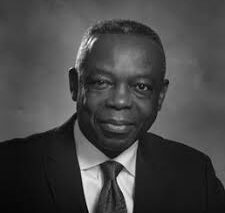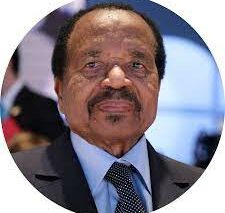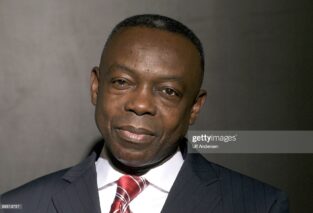(Revised and reproduced from Cameroon Post # 0062, May 23, 1997)
For the past several years, an Italian Catholic organization, the Centro Orientamento Educativo (COE), which has been active in various Catholic dioceses in Cameroon for nearly thirty years, has been organising a yearly film festival in the northern Italian city of Milan dedicated to the African cinema. This festival provides an opportunity for African film-makers, film-critics and journalists to meet and exchange notes on the fate of the cinema, the ‘7th art’, in Africa. At the March 1997 festival, I met and talked with Dr. Mbye Cham, an American of Gambian extraction, about the relevance of the cinema to African studies. He was then teaching literature and the cinema as a discipline at Howard University in Washington D.C.
Dr. Cham, is there a link between African literature and the cinema?
There certainly exists a strong link between African literature and film. I came to the cinema through literature. When I was in grad school, I began to discover that some of the people, who were principally involved in the production of literary works in Africa, were also involved in other forms of the media, especially film. I began to admire people like the Senegalese writer and film-maker, Ousmane Sembene and some Afro-Americans, who were interested in adapting their literary works to the cinema. Over the years, I have seen the connection between the two become much closer to the extent that it sometimes becomes artificial to draw the line between the two. What you encounter in literary texts by African writers tends to reflect similar concerns that the cinema is involved in.
Apart from Ousmane Sembene, who has turned many of his literary works into films, how many other African writers have followed his lead?
It is true that Sembene, in terms of sub-Saharan Africa, pioneered the writer/film-maker tradition but, in recent years, more and more Africans are becoming interested in film. Ngugi Wa Thiong’o, for example, has not only expressed an interest in film but has actually done some film work. An individual like Timothy Basore from Côte d’Ivoire also came to cinema through writing. Bassek Bâ Khobio, from the Cameroons is a novelist in his own right. In South Africa, there is Titsi Dangaremba, who has just shot her first feature film entitled Everyone’s Child. She has also done written work in terms of text, screen plays and stories. So there is an increasing tendency for African film-makers and writers to cooperate on a much more substantial basis and, by so doing, have enhanced the link between literature and the cinema on the creative landscape in Africa.
I understand the North American–based African Literature Association (ALA) is dedicating its conference this year [1997] to literature and the cinema. What do you see coming out of a conference of that nature?
This is, of course, evidence of the growing interest that African cinema is commanding on the part of people who have traditionally worked in the area of African literature alone. For quite sometime now, I have been one of the lone voices pushing for a greater recognition of the intimate relation between literature and film both in the African Literature Association (ALA) and in the African Studies Association (ASA). I organized film sessions and film shows in both of these organisations as far back as the late seventies. But suddenly, over the past few years, with an accessibility to and availability of African films in video form, we have begun to see people manifesting an increasing interest in probing into the relationship between the two disciplines, and I think the forthcoming ALA conference is emblematic of this trend.
Do you expect many African writers and film-makers to answer present at the said conference?
I understand a good number of them are already planning to attend: Gaston Kabore, from Burkina Faso, François Okowach and Bassek Ba Khobio, from the Cameroons, Asse Djebar, from Algeria, Titsi Dangaremba and a host of others have already indicated their willingness to answer present. This will be the first time that the ALA is devoting such a major portion of its deliberation to examine the relationship between African literature and the cinema, and to me this is quite a victory.
With the African cinema landscape awash with cheap Hollywood and Indian productions, how do you, as a keen observer of the African film industry, see the future of the cinema by Africans in Africa?
It’s indeed an uphill task. I think that African film-makers and those working in the film industry in Africa have a difficult task ahead of them. The Indian romance spectacles, the “Kung Fu” movies and all other imported, cheap Hollywood films have an extremely powerful grip on the popular imagination of the ordinary film-goer in Africa as they are usually the only films regularly screened in African theatres. But the key issue here, I believe, is the lack of viable distribution networks for African films. It’s even a miracle, given the limited means at their disposal, that African film-makers are able to make films at all, and once such films are shot, the other major hurdle is getting them out to the spectator. People have to see a film before it can make a career, both artistically and commercially.
Listening to those film–makers, it seems that it is only in festivals, like this one in Milan, that their films ever get to be screened.
That’s unfortunately the case. So far, African films seem to exist only within the confines of film festivals. There have, however, been efforts here and there to break out of this circuit and to go into the normal distribution network, but that is proving to be quite a challenge both in Africa and outside of Africa. Some African film-makers recently banded together to form an association called UCECAO (Union des Créateurs et Entrepreneurs du cinéma de l’Afrique de l’Ouest). This was the result of a meeting held in Bamako, Mali, over the past two years, under the leadership of Souleymane Cisse, Ousmane Sembene and all those concerned with film-making in the African sub-region. Their aim was to do something concrete in terms of altering the distribution landscape to ensure that African cinema also thrive in other areas outside film festival circuits.
You teach a subject entitled “literature and the cinema” at Howard University in Washington DC. Would such a discipline, in your opinion, be considered of much use in an African University?
I think that it is very important for African countries to recognise the importance of cultural production. In the whole process of development and of transforming society for the betterment of the majority of the people, there has been a tendency to relegate the non-material aspects of life in Africa to secondary status. The general belief is that people need other material and social aspects of life much more than the product of culture and of the imagination, which is a pity.
Even though when you look at the way people are struggling to survive in Africa today, you may say that they are right in a way to go more after the material things of life, but culture is also an integral part of everyday life and we can only ignore it at our own risk and peril. So, I think that African universities, despite the limited resources at their disposal, would do well to start thinking of developing some kind of expertise in this film area. I know that there have been some initiatives along those lines. I was in Ghana recently and we did a workshop as part of a project funded by the Ford Foundation between the University of Legon, Northwestern University and CODESTRAL, which is based in Dakar, to develop a capacity in African film criticism and film-making. I believe that film and video are very important media that African countries, through their universities, could marshal to promote the development efforts of the continent.


